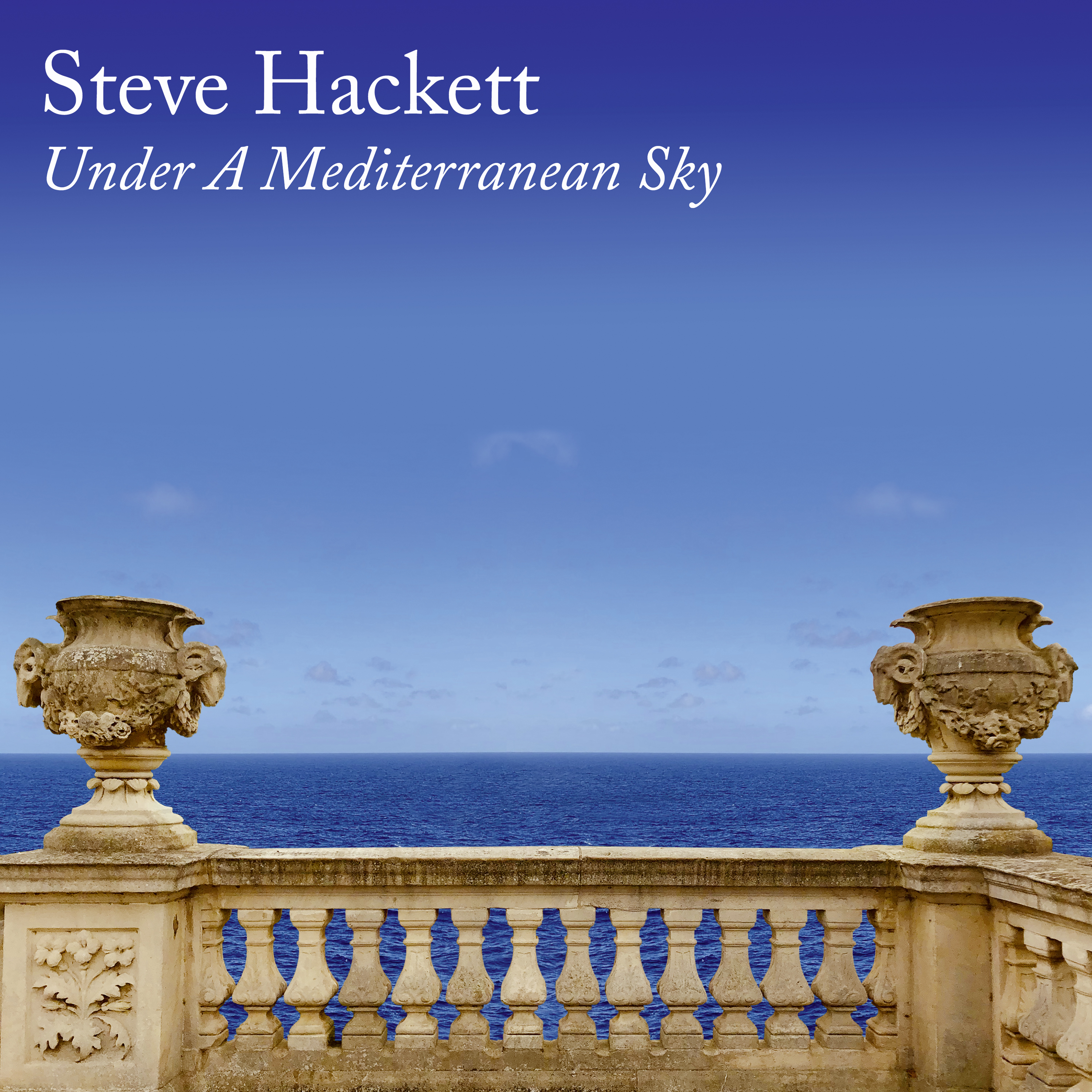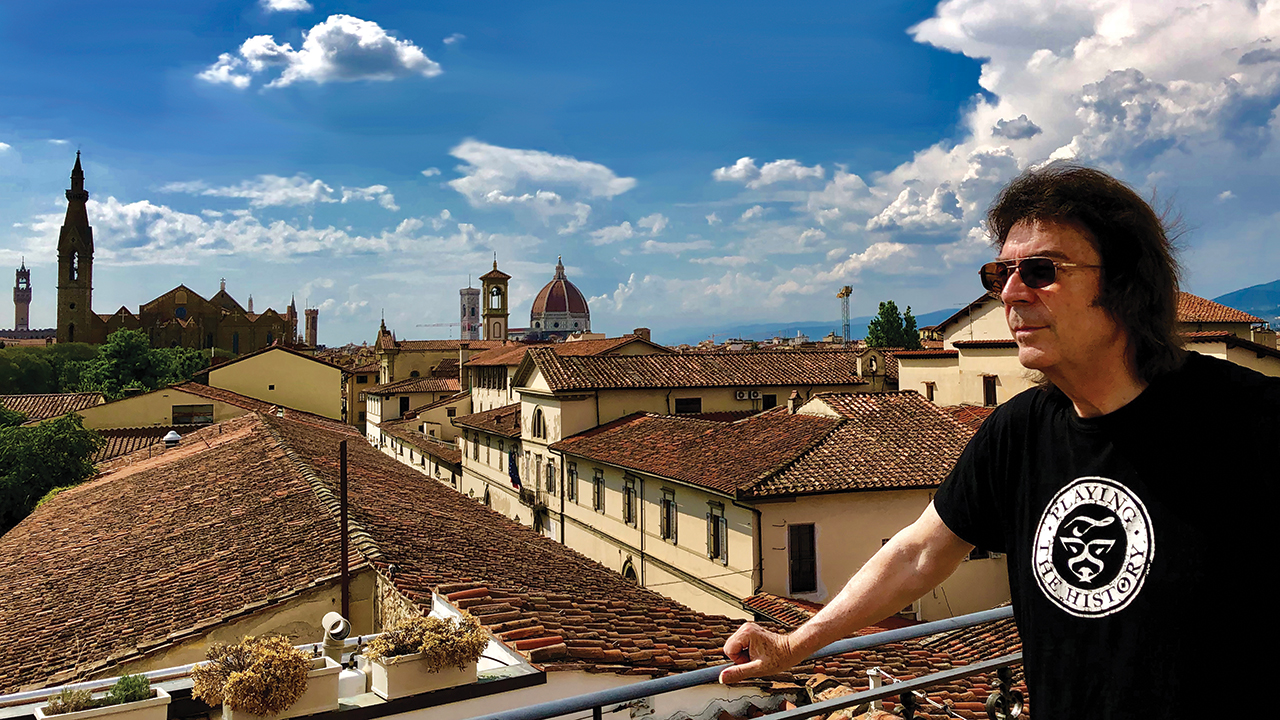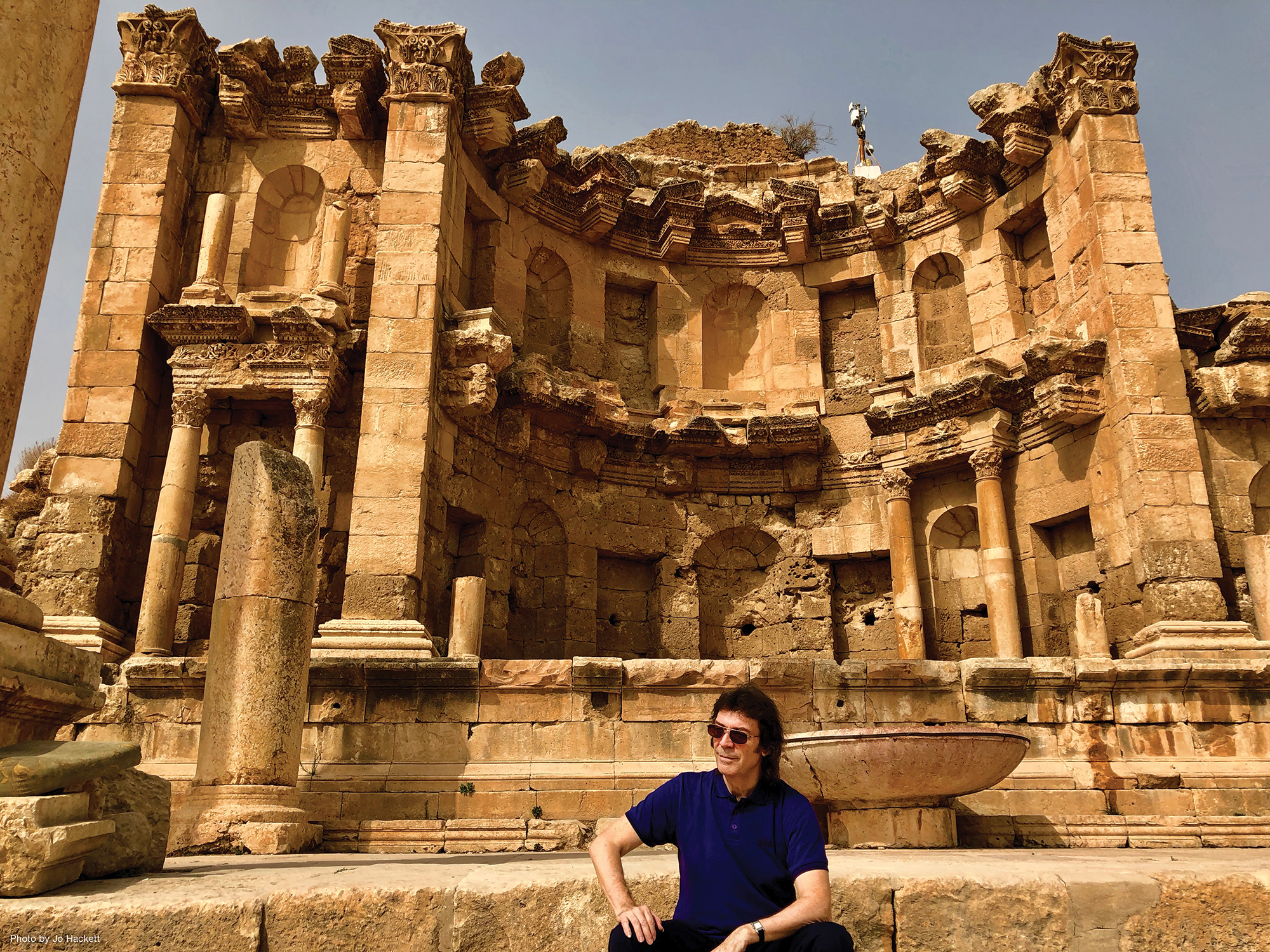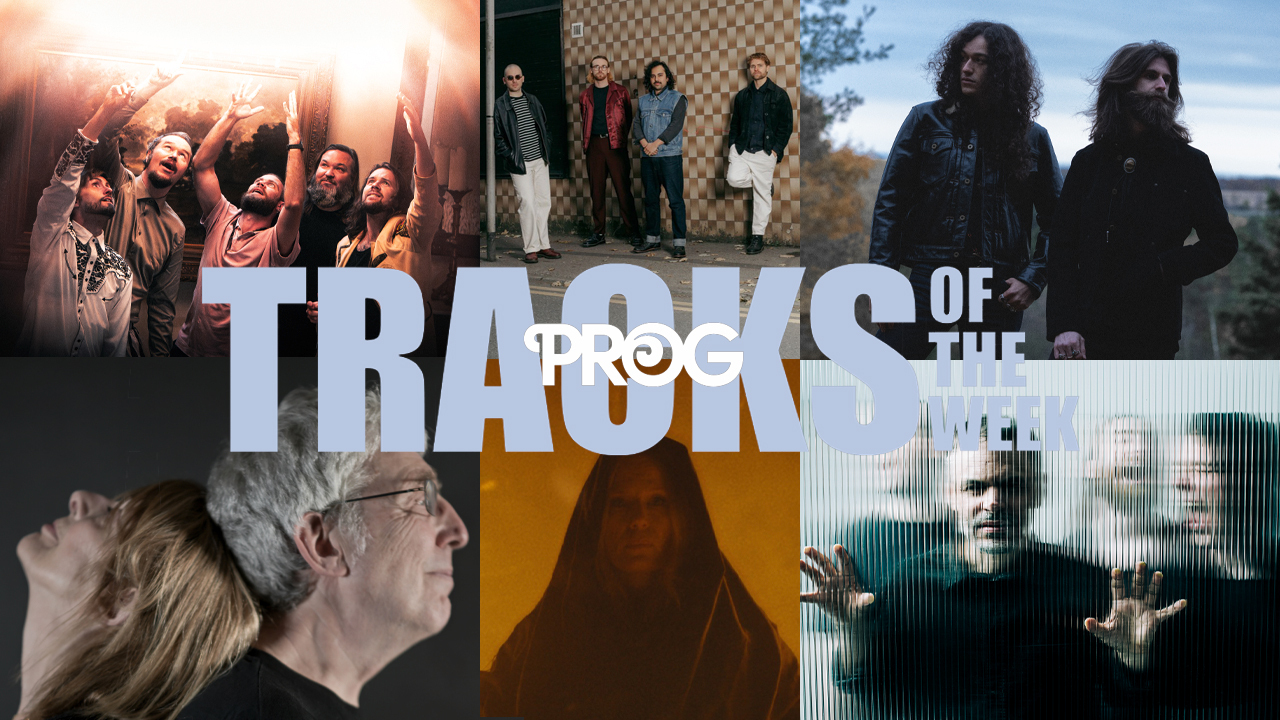Steve Hackett's Mediterranean adventure
The story of 2021's Under A Mediterranean Sky, Steve Hackett's first wholly acoustic album for 13 years

Select the newsletters you’d like to receive. Then, add your email to sign up.
You are now subscribed
Your newsletter sign-up was successful
Want to add more newsletters?

Every Friday
Louder
Louder’s weekly newsletter is jam-packed with the team’s personal highlights from the last seven days, including features, breaking news, reviews and tons of juicy exclusives from the world of alternative music.

Every Friday
Classic Rock
The Classic Rock newsletter is an essential read for the discerning rock fan. Every week we bring you the news, reviews and the very best features and interviews from our extensive archive. Written by rock fans for rock fans.

Every Friday
Metal Hammer
For the last four decades Metal Hammer has been the world’s greatest metal magazine. Created by metalheads for metalheads, ‘Hammer takes you behind the scenes, closer to the action, and nearer to the bands that you love the most.

Every Friday
Prog
The Prog newsletter brings you the very best of Prog Magazine and our website, every Friday. We'll deliver you the very latest news from the Prog universe, informative features and archive material from Prog’s impressive vault.
“This album is a love affair turned into music, really. I loved doing it. I love every note on it.”
Steve Hackett is full of admiration, and why shouldn’t he be? His new album Under A Mediterranean Sky is an ethereal affair, led by a marriage of exotic nylon guitar and swathes of orchestration. His live work – plugging into his roots as Genesis’ former guitarist – also remains in great demand.
Speaking down the phone from his home in Teddington in south-west London, Hackett is content. “It couldn’t be going better,” he replies when asked how his life is right now.
Under A Mediterranean Sky is his first acoustic album since 2008’s Tribute and it is, in effect, an ode to the rich music and culture of the titular region.
Its instrumental core grabs and nabs inspiration from the countries that surround the Mediterranean Sea, including Spain, Italy, Egypt and Greece – places where he and his wife Jo have travelled both on the job and as tourists. Just like the sea itself, its music can be unpredictable. One moment Hackett can be throttling his acoustic into a frenzy, accompanied by cinematic strings, the next he can be effusing melodies as soft as the touch of a newborn baby.
“I just love the idea of an imaginary journey that recalls all the other actual journeys that I had made,” he says.
“It’s a travelogue, a musical diary perhaps, but it’s also a dream ’til we’re able to fully engage with the world again.”
Sign up below to get the latest from Prog, plus exclusive special offers, direct to your inbox!
There’s probably no better tour guide than Hackett, a self-crowned “maniac for music” who doesn’t turn down the chance to soak up local tunes when on his travels.
He casts his mind back to travelling to Peru and coming back with an unexpected local instrument in his luggage. “I was given a charango [similar to a lute] as a gift from some fans. I’ve used it on several albums now.”
“You can’t avoid it,” he says as he talks about imbibing local, traditional music. “I was in Andalusia, watching the flamenco dancers, and listening to a flamenco guitarist, who I then started talking to. He showed me some things. For 30 seconds he became my teacher, but I’ve never had a guitar guru as such.
“I’ve always wanted to make my own discoveries, and make my own mistakes. It’s important to be able to fall flat on your face and say, ‘I don’t know anything, I’m completely useless.’ Without exploring the possibility of failure, I don’t think you get to make that leap to the Moon.”

The album feels timely; it was recorded during a pandemic where travel was restricted, connections across the world scythed apart. “It wasn’t lost on me the fact that at the moment all our journeys tend to be virtual,” Hackett says.
So what are the prime places to visit in the Med? “Italy is a big favourite,” he replies. “I’ve toured there more probably than any other region in the Mediterranean, but then I did masses of gigs in France. Spain, of course, I love for its music and architecture and all the rest. Greece, I’ve travelled to more in recent years. I haven’t played there, but I’ve shot a video or two there. It’s a hugely mystical place. Pompeii, which I’ve visited many times, was the inspiration for the track Casa Del Fauno.”
There are only a couple of pieces on the album that were already written, “so you could say that a lot of was written to order. But,” Hackett continues, “nobody was twisting my arm. It was a commission in as much it was a self-commission, and things were taking shape while I was doing it.”
The album mercifully avoids falling into the dangerous trap of sounding like a lazy pastiche of other cultures, or easy listening background music; it’s well-balanced, tasteful and, most importantly, feels authentic. The guitarist worked with longtime collaborator Roger King on the record who, among other things, contributed sweeping string arrangements which add a palatial brushstroke to the canvas.
Completing the musical brew are saxophone and flute cameos, as well as traditional instruments played by musicians from Azerbaijan and Armenia, while Hackett also whips out the charango and Iraqi oud.
“Once every 10 years or so I end up doing a record a bit like it: nylon classical guitar and as much orchestra as I can muster, whether that’s real or imagined or virtual orchestra,” Hackett explains. “I wouldn’t want to confuse the public with the idea of, ‘oh he’s going to do acoustic now, he’s stopped doing rock’n’roll’. It’s not like that. I’m still involved in rock.”

With maturity often comes an acceptance that ego should take a back seat for the greater good. Under A Mediterranean Sky feels no different, with Hackett happy to take some moments out to let his guests flourish.
“I’m very lucky at this stage of my life to be able to work with such a wealth of talent,” he says. “Some of it’s local, but some of it’s further afield where I just feel as though I’m working with some of the best musicians in the world, and I want to celebrate that. This is why I step back and let others have the limelight… I don’t want to be the only soloist. It’s important to work with other people and to let them shine.”
Hackett turns 71 on February 12, but you’d barely know, going by his fruitful work rate. Kickstarting his acclaimed career following an advert in Melody Maker, he played his first gig with Genesis in 1971, and performed on classic albums including Nursery Cryme and The Lamb Lies Down On Broadway. He left the group in 1977 to fly solo, although he later formed GTR alongside Yes stalwart Steve Howe in the 80s.
“I’ve been focused on music ever since I was about two years old,” Hackett says resolutely. It’s a bold claim: most children at two are more likely to be inflicting fear onto their parents by climbing on chairs and sticking things in places they shouldn’t, but from his sophisticated guitar skills, you wouldn’t disbelieve him.
“My dad played a number of things, usually wind instruments,” Hackett explains. “He gave me a harmonica at the age of two. I’d spend lots of time trying to play it. It all came together when I was about three or four and I was able to play tunes on it, probably to try and please my mother. Guitar didn’t really figure in my life until much later.”
A lesson, then, for all parents: buy your child a harmonica when they’re tiny, and who knows where they might end up later in life.
Hackett describes his beloved guitar as a “means to an end for me; it’s my TARDIS”.

On his new album it’s all about nylon strings and acoustic plucking, rather than a Les Paul. It feels effortlessly comfortable for Hackett, though, who is just at ease finger-picking as he is wailing out a heart-pounding solo.
“There are two gods,” he says. “One is electric and one is acoustic. Sometimes I’m worshipping at the shrine of the electric demon and other times that very sensitive, beautiful thing that is the nylon guitar. I think it evokes so much of landscapes.”
Hackett compares the possibilities of nylon guitar with that of piano but with the keys you have more depth, and can conjure up “thunder”.
“The secret, I think, is to make the guitar sound limitless in terms of what it could do, and take the fretboard almost by the scruff of the neck and say: ‘You’re not a poor old second cousin to the keyboard’,” he says.
“It’s limitless tonally and sometimes I play it like a piano: sometimes I lay into it and use the rapid fire thing. But I’ve discovered all sorts of ways to arpeggiate. I’ve been working on it for a long time now. I started off as a plectrum player, self-taught, and before too long I realised I wasn’t going to be able to bring it fully alive until I started using the nails.”
Hackett’s indulgence in acoustic was first crystallised on 1983’s classical infused Bay Of Kings. More solo albums sporadically followed, including a couple alongside full orchestras. His latest salvo comes around two years after his last rock album, At The Edge Of Light, which reached No.28 in the UK chart and continued a prolific run of form on the label InsideOut.
Out on the road and Hackett is continuing to prove a dominant force in prog’s live circles, helped by a willingness to revisit Genesis classics. He has an all-star cast: in recent years his onstage collaborators have included Roine Stolt, Nick Beggs, Craig Blundell, Nad Sylvan and Marco Minnemann, among others.
When Prog yarns with Hackett it’s not long after his latest Genesis Revisited tour was rescheduled to 2021/2022 as a result of Covid. It was the same story with the reunited Collins/Rutherford/Banks Genesis line-up, who also had to put back their highly anticipated tour. There’s a certain irony to Genesis reforming while Hackett is also out there celebrating the band’s back catalogue, but judging by his prolific solo material he shouldn’t need to worry about Collins and co stealing his thunder.
Under A Mediterranean Sky is a fine addition to Hackett’s portfolio, and one for progheads as well as fans of folk, classical and world music.
“Somehow I hope it will do for people what Ravel’s Bolero did for me when I was a 12-year-old buying my first album,” he says. “It seemed to conjure so much more than merely a French composer focused on Spain. It seemed to encapsulate Egypt and all of those kind of things that a young, suggestive 12-year-old brain might take onboard.
“For instance, whenever I heard Ravel’s Bolero in those days, it always conjured to mind Cleopatra’s barge coming closer and closer along the Nile.”
The 11 tracks on Hackett’s new album do a stellar job of grabbing the listener’s hand and running off to the Med: dim the lights, cradle a glass of red and you’re almost there. They’re a bold statement from Hackett, who could have easily furrowed down the prog rock path once more. But the chance to do something different, and unexpected, proved to be too alluring.
“Rules are meant to be broken,” he smiles. “If you don’t break rules in music, you might as well throw in the towel.”
This article originally appeared in issue 117 of Prog Magazine.
A writer for Prog magazine since 2014, armed with a particular taste for the darker side of rock. The dayjob is local news, so writing about the music on the side keeps things exciting - especially when Chris is based in the wild norths of Scotland. Previous bylines include national newspapers and magazines.

